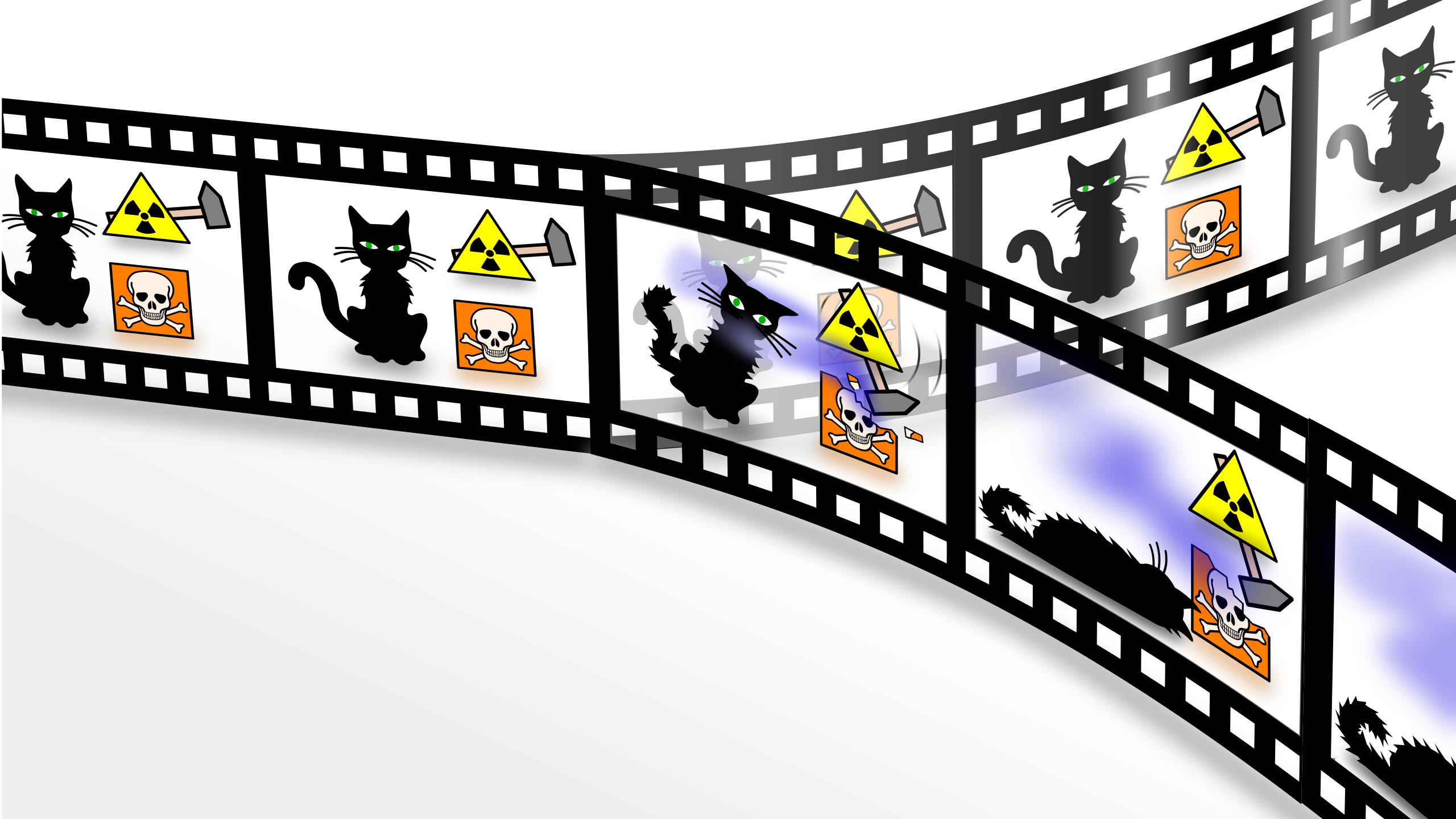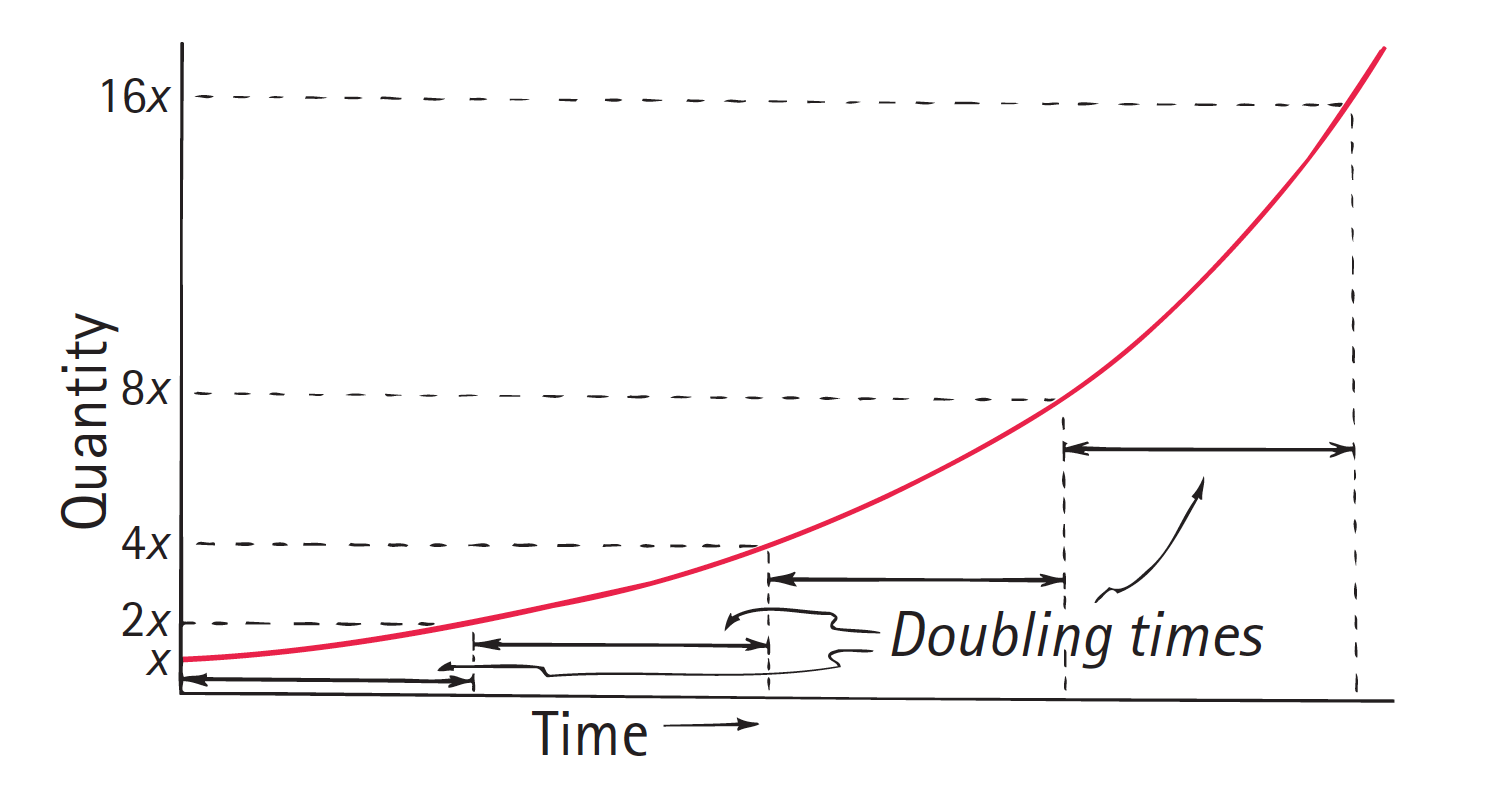Ask Ethan: How can I grow up to study parallel Universes?

- One of the most fascinating ideas in all of physics is the notion of parallel Universes: that all the various possible probabilistic outcomes occur somewhere in the quantum multiverse.
- Although it sounds like fantasy, this notion is grounded in real science, and young people all over the world can grow up to study it, and related topics, as a professional physicist.
- For someone who’s just starting high school, especially if they’re being compelled to specialize early on, this can seem daunting and out-of-reach. Here’s how, if that’s your goal, you can achieve it.
Many of us — perhaps even most of us — didn’t know what we wanted to do with our lives, career-wise, when we were still in school. Some of us didn’t have any very strong interests that stood out from the other possibilities; others of us had many interests and didn’t know which one to pursue most vigorously; still others didn’t even find precisely what it was that we were passionate about until much later in life. However, as we age, we swiftly find that without adequate preparation, many potential doors will be closed to us based on the choices we made early on in life, and increasingly many school districts are exacerbating those problems by “tracking” students onto career paths as early as their freshman year of high school.
What advice would one give, then, to a high schooler who does have an inkling of a very ambitious career path — to study parallel Universes — but is being forced to choose a track/major despite only just beginning their teenage years? That’s the subject of this week’s Ask Ethan question, courtesy of Vivaan D., who inquires:
“Recently, I have taken Computer Science as my career choice for high school, as I am about to enter the 9th grade. Although I have a deep interest for Building mini programs, in which I hope to one day become a fully developed Coder where I will be able to take part in big projects that help the future, I have become interested in the Parallel Universe Theory… I know this might sound childish and irrational, I seriously want to know what courses and what camps I should attend to see if I can make an impact to the study of Parallel Universes.”
The big question of “How do I, a mere high school student, prepare myself for a future career,” I’m sure, is on the mind of many young people out there. Here’s what I’d advise, both specifically for Vivaan and also for anyone else out there who might find themselves in similar, but not identical, shoes.

Parallel Universes
What’s important to recognize, if you have a specific career or field of interest in mind like “parallel universes,” is that this is a highly specialized aspect of a more general field: physics in this case. Physics, like many academic disciplines, isn’t a field where your average 9th grader can go ahead and begin making groundbreaking contributions right away; you have to lay a solid educational foundation for yourself first. Only then, once that foundation is in place, will you be able to go on and make those key contributions: atop that needed foundation.
For parallel universes in particular, you’ll need to understand quantum physics at a very deep level, as the place where these parallel universes live is specifically within the mathematical space (known as a rigged, or physical, Hilbert space) where quantum wavefunctions live. If you’re interested in exploring the possibility that these parallel universes actually exist somewhere in real, physical space, but beyond the cosmic horizon of our observable Universe, you’ll also want to learn about a branch of theoretical astrophysics known as theoretical cosmology — which concerns itself with the overall properties of the cosmos as a whole — and in particular about cosmological inflation and the inflationary multiverse that arises within it.

The path to get there
These are specialties, however, that one doesn’t typically encounter until graduate school. Which is to say, if you spent your high school and college years primarily studying computer science, you would probably be an excellent programmer and have outstanding skills to help you write a wide variety of code for running simulations of various systems, but you’d be missing out on understanding the physics and mathematics that underpinned what you were attempting to calculate/simulate and why. You could still succeed in graduate school — and many who figure out what they want to do later in life take exactly that path — but you’ll have a large number of gaps to fill in when it comes to your education.
In order to become adept with quantum mechanics (and/or cosmology), there are some skills — mathematics skills — that you’ll want to be proficient in. These skills include a knowledge of:
- vector calculus (i.e., “calc III”),
- linear algebra/matrix mechanics,
- differential equations (including ordinary and partial differential equations),
- Fourier analysis (including Fourier series and Fourier transforms),
- complex analysis,
and, in particular, how these fields of mathematics are used to solve problems in the context of various physics disciplines: classical mechanics, electromagnetism, and quantum mechanics. If you get to the graduate level in physics and have deficiencies in any of these areas, you’ll likely have to do remedial (undergraduate) work before you’re ready to take graduate courses in these fields.

The many areas of modern physics research
Of course, if you do begin graduate school with a proficiency in these areas, it’s not like you’ll find that you’re restricted to learning about and performing research on the topic of parallel universes. Instead, you’ll find that you’re actually well-prepared to go into any area of physics you have an interest in, including:
- high-energy physics,
- solid-state/materials physics,
- low-temperature physics,
- astrophysics,
- computational physics,
- geophysics,
- biophysics,
as well as many others like nuclear physics, medicinal physics, engineering physics, optical physics, and sub-fields of physics that will emerge in the future. (Including physics with “big data” and machine learning, which is emerging as its own field right now.) This is true whether you’re more passionate about theory, experiment/observation, or simulations/computation.
But one of the big things I’ll caution you about, Vivaan, as well as anyone else who’s reading this, is the following: when it comes to students that enter graduate school in physics, fewer than 20% of all entering students both:
- know what they want to do as far as a subfield of physics goes,
- and wind up getting a PhD in that particular subfield.
In other words, don’t close your mind to other avenues you haven’t even yet explored; you may find that your passion, and/or a special talent, lies in an area you might not intuit at this point in your life.

The perils of early specialization
Although we’re often encouraged to choose a path for ourselves early on, this is a strategy that can backfire. When you specialize or narrow your focus too much, too early, it can severely restrict the options that are open to you down the line.
Why is this?
Because, as full-grown adults, we’ll all have our own unique toolkits as far as what problem-solving resources are at our disposal. Particularly when our brains are younger, we can benefit tremendously from exploring a wide variety of options, teaching ourselves skills in a wide set of areas, and — for lack of a better term — nurturing the parts of our brains that learn how to learn something new. Sure, if you go to graduate school in physics, almost everyone is going to be very smart, good at math, have experience solving a wide variety of physics problems, and will have taken similar courses. But it’s often the things that make you unique, or the types of skills and talents you’ve developed that most other members of your cohort lack, that will set you apart.
You should keep your mind open to novel possibilities that could turn into a passion or even a career. And keep this in mind as well: the job, or even the field, that you might find success in, later in life, may not even exist today. In fact, you may look back, later in life, and realize that you actually helped create the job you wind up with for yourself.

How do you grow your mind in those ways?
The first thing to remember is that we are all unique: in terms of talents, resources, families, and what we have access to. You, in particular, are going to have your own interests, your own ideas, and you absolutely choose what you do and don’t pursue. However, there are a series of skills that, if you work on developing them, you will undoubtedly see a payoff down the road in terms of what your mind is capable of. This includes:
- learning mathematics,
- learning all of the general sciences (physics, chemistry, biology, Earth science, etc.),
- learning computer literacy and programming (the programming language isn’t generally important, as most skills that you learn in one language are transferable to others),
- learning communications skills (reading, writing, and verbal communication) in your preferred language,
- learning at least one foreign language (particularly if your desired field is primarily conducted in one language, e.g., physics is mostly conducted in English),
- learning some sort of artform (painting, drawing, sculpture, dance, etc.),
- learning to play at least one musical instrument,
- and participating regularly in some sort of active, athletic activity.
Keep in mind: you don’t have to do any of these things well. (Practically no one does all of these things well!) You just have to put in an effort to genuinely try, and you’ll discover it’s much easier to put that effort in if you enjoy what you’re doing. But these things will help you grow your brain in positive and powerful ways, and regardless of what career you do wind up going into, you’ll be richer for having learned them.

What does this mean for a high school student?
Although it might seem like looking so far ahead, at this point in your young life, is pointless, it actually serves three major purposes.
First, going through this exercise — of identifying what you eventually want to achieve and what you’ll need to do/learn in order to get there — is what separates those of us who have dreams of what we’d like our lives to be, which is all of us, from those of us who can transform those dreams into attainable goals.
In other words,
- taking stock of where you are today,
- figuring out where you want to wind up,
- and identifying concrete steps that will allow you to go from here to there,
is precisely how you do it: how you turn your dreams into goals. This stymies a lot of people throughout life, because they don’t quite see a path that will lead them to their goals. There’s a corollary that comes along with this: taking a concrete step toward “where you want to wind up” can be its own goal, is worth celebrating when you take that step, and can often open up new possibilities that were completely obscure to you prior to that step being taken.
Having dreams is something that allows us to build our future, but it isn’t a how-to guide. Building your own how-to guide, and following through with it, is how you turn your dreams into goals, and then, those goals into reality.

Second, thinking about where you are today helps you understand the importance of each of the things you’re working on, both now (when you’re in high school) and in the future (whatever that may hold). For someone interested in parallel universes:
- You should learn mathematics and work hard at it: algebra, geometry, trigonometry, precalculus, and calculus (both differential and integral calculus) if you can, as these skills will be foundational for your future studies.
- You should learn science, and that means actively struggling with and working hard to solve problems. This involves both theoretical coursework and also experimental laboratory work. You may discover that you have a “knack” for one and not the other, and you shouldn’t be afraid to cultivate your strengths.
- You should learn communication skills in both your main language and also how to communicate, at least at a basic level, in at least one foreign language. Science, in particular, is an international endeavor that knows no national or language boundaries, and if you continue with it, will likely collaborate with many international colleagues, and will also likely travel to or even live in a country foreign to the one you’re in now.
- You should learn computer programming, irrespective of whether you plan to make a career out of it, as it’s increasingly becoming a mandatory skill for many jobs and careers.
- And you should work on becoming a well-rounded person: not just intellectually but socially as well.
The payoff for all of this hard work won’t be immediate, but I promise, it will pay off down the road.

And third, and perhaps most importantly, I want you to realize that the goal for right now shouldn’t be to take advanced courses or go to specialized camps or programs to learn about the minutiae of the specific thing you’re interested in. Sure, you can do those things and they’ll no doubt be enriching to you, but it won’t “help you get ahead” the way you might be thinking of today. Instead, spend this time exploring, feeding your curiosity, playing in the proverbial sandbox, and experimenting with a variety of interests. You’re going to develop in ways that you cannot even anticipate at the start of high school, and you should give yourself the freedom to do exactly that.
Furthermore, I want to offer an alternative to the notion that it’s a good idea to make a career choice for high school, even though increasing numbers of school districts are not only encouraging, but mandating it. Learning the skill of career planning is useful, as the average adult these days has not just one but several different jobs over the course of their lives. Choosing a specific career while still in school, especially at this early stage, is a detrimental fad that has only really come to the United States over the past 10 years. There is no evidence that this does anything other than put destructive, unnecessary pressure on students, faculty, and even administrators, parents, and school staff.

This isn’t, by the way, just some armchair advice from me; this is something I myself have lived, taught, and have watched a huge number of my friends and colleagues both succeed and fail in achieving their career goals. This includes a large number of people who failed to achieve their career goals, over and over, before ultimately finding success in their careers and in life. What you learn, and what you work hard at, can only benefit you and lead to your own growth.
Don’t feel locked in to a career choice you make today, in college, or even in your 20s, 30s, or 40s. As long as there is life in you, there’s the capacity to learn, grow, change, and try something new.
Don’t let a high school administrator, a board of education, or a school district policy be the arbiter of how you live your life; you’re the one who has to live with yourself.
And, perhaps most importantly, don’t be afraid to have a crisis in life. Whenever you recognize that the path you’ve planned out for yourself isn’t serving you well any longer, you owe it to yourself to reckon with it: to have that crisis. A crisis isn’t a dirty word or a thing to be avoided; it’s a turning point, where you can not only choose to change course, back up, or go down a different path, but where you can find opportunities that you might not have considered before. There’s enough pressure and expectation on all of us already without us artificially adding more. Work to be the best version of yourself, and I have a feeling you’ll be well-prepared for your future, whatever it may hold.
Send in your Ask Ethan questions to startswithabang at gmail dot com!





